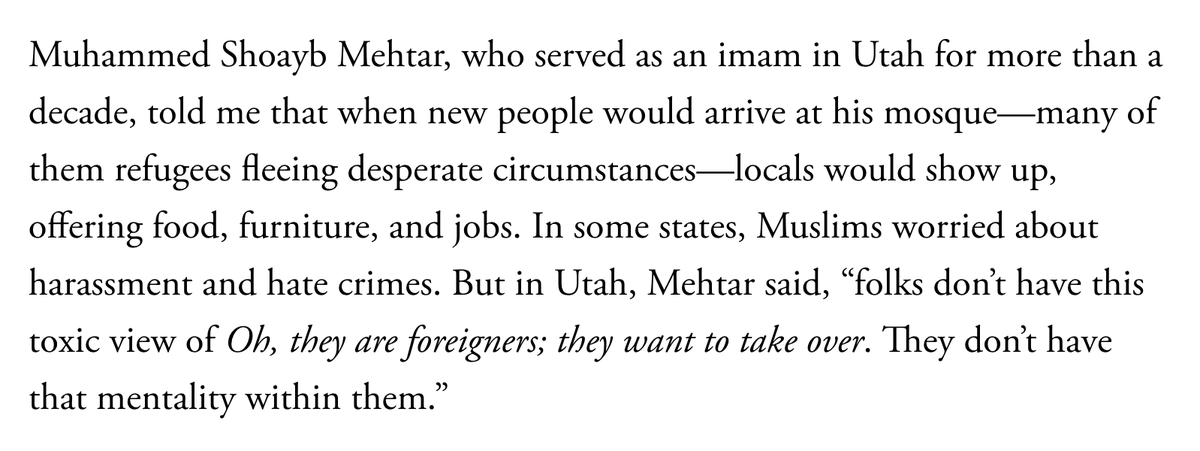Former aides say they’ve heard Trump privately ridicule conservative religious leaders, dismiss faith groups with cartoonish stereotypes, and deride rites and doctrines held sacred by many in his base.
My story on what Trump really thinks about religion: theatlantic.com/politics/archi…
My story on what Trump really thinks about religion: theatlantic.com/politics/archi…
When Trump learned about a megachurch pastor trying to raise $60 million to buy a private jet, he was delighted by the "scam," according to Michael Cohen, and eager to highlight that the pastor was "full of sh*t."
"They're all hustlers," Trump said.
theatlantic.com/politics/archi…
"They're all hustlers," Trump said.
theatlantic.com/politics/archi…
One former Trump adviser told me he seems to feel a kind of kinship with certain prosperity gospel preachers: theatlantic.com/politics/archi… 

I obtained a recording of a private meeting Trump had with religious right leaders in 2016. It's pretty revealing (especially when considering that, per Pew, most rank-and-file white evangelicals believe Trump is a religious man). theatlantic.com/politics/archi… 

Once, years ago, Melania informed Trump that their son was at a playdate with a Jewish girl from his school. “Great,” Trump said to Michael Cohen, who is Jewish. “I’m going to lose another one of my kids to your people.” theatlantic.com/politics/archi…
Don Jr. has been so savvy in courting Latter-day Saints—expressing interest in the Church’s history, reading from the Book of Mormon—that he’s left some influential Republicans in the state with the impression that he may want to convert. theatlantic.com/politics/archi…
Trump has frequently made fun of Mitt Romney’s faith in private—and was especially vicious when he learned about the religious undergarments worn by many Mormons. “Oh my god,” Cohen said. “How many times did he bring up Mitt Romney and the undergarments" theatlantic.com/politics/archi…
When I asked the White House about these anecdotes, a spokesman touted Trump's record on religious freedom and abortion, then added: “The president is also well known for joking and his terrific sense of humor, which he shares with people of all faiths.” theatlantic.com/politics/archi…
I know the "fake news!" response is a reflex at this point, but the president's apologists may want to pause and consider why the White House didn't dispute any of the details in this story. They pointed, instead, to his "terrific sense of humor." theatlantic.com/politics/archi…
Some Trump apologists are defending him here by drawing distinctions between pastors like Benny Hinn/Creflo Dollar and other, more virtuous religious leaders. That's reasonable! Do you think Trump draws that distinction? ("They're all hustlers," he said.) theatlantic.com/politics/archi…
(And just for the record, because my mentions are insane: I'm not here for the "Trump's right, religious people are the worst!" tweets. I'm a person of faith, and I have no interest in glibly mocking others' beliefs. Wish that could be said of everyone...) theatlantic.com/politics/archi…
• • •
Missing some Tweet in this thread? You can try to
force a refresh









